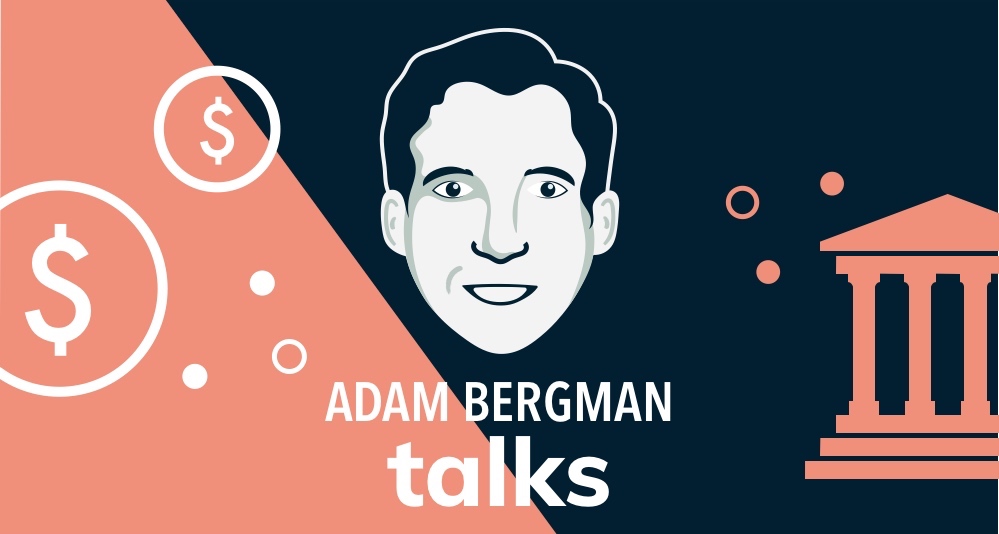IRA Financial’s Adam Bergman discusses a possible financial transaction tax that Senator Bernie Sanders has proposed and what it could mean for retirement savers.
In his latest podcast, Mr. Bergman discuses the financial transaction tax that has been proposed by presidential candidate, Senator Bernie Sanders. He will also revisit the wealth taxes by both Senators Sanders and Elizabeth Warren. Lastly, he talks about the implications of a possible financial transactions tax and what that means for anyone saving for retirement.
Proposed Wealth Tax
Both presidential hopefuls, Sanders and Warren, have each detailed a wealth tax. Basically, they want to tax the super-rich more to help fund their projects. These projects in include free and/or reduced universal health care costs and college education.
Senator Warren wants to tax those who are worth $50 million a 2% tax and a 3% tax for those worth at least $1B. Senator Sanders’ plan is much more aggressive, with a tax on those worth $32 million, up to 8% on married couples worth $10 billion or more.
The downside of a possible wealth tax are those who have businesses that have been assessed at tens of millions of dollars, but don’t have the assets to pay a wealth tax. Others who may be affected are real estate investors. Yes, they may have millions worth of properties, but the majority is tied through loans and mortgages.
Mr. Bergman did a recent podcast about the proposed wealth tax. It’s a good listen if you want to learn about the wealth tax and how it may affect you.
Financial Transaction Tax
A Financial transaction tax looks to take money anytime an investor makes a trade. Currently, the SEC charges 0.002% on transactions. Sanders’ plan calls for a 0.5% tax on stock trades, 0.1% on bond trades and 0.005% on derivatives. The hope is to make trillions of dollars to fund his plans for free higher education. He would also look to pay off all current student debt.
He proposed a similar tax when he ran for president in 2016. However, when analyzed, the plan fell way short of the stated goal. The higher tax on stock trades would lead to less overall volume in trades. Thus, the taxes raised would be significantly lower when looking at current trading.
In a statement, the aim of the tax is to go after “Wall Street investment houses, hedge funds, and other speculators.” However, the average American will be affected. Trading costs have gone down significantly. This tax may prevent the middle class from investing more in the stock market.
How Will the Tax Affect Retirement Savings?
Most retirement funds are invested in stocks, mutual funds, exchange traded funds and bonds. These are known as traditional investments. Trading these assets have allowed people to invest in what they like. Throw in a financial transaction tax, and investors may quit trading altogether. Senator Sanders has also said that he would create an income tax credit to offset the cost of this tax for lower income individuals and couples. However, the credit may not suffice for all Americans.
IRA Financial is all about self-directing your retirement plan. Instead of traditional investments, we want our clients to look into alternative assets in their Self-Directed IRA and Solo 401(k) plans. These include real estate, precious metals and tax liens. Obviously, if it costs more to trade stocks and bonds, people may look to alternative assets. While this may be good for our industry, as a whole, it’s not good for the country.
There’s a slim chance of the transaction tax to ever come to fruition. In Mr. Bergman’s opinion, this is not a neutral tax and no tax should change our behavior. For example, if you go out to eat at a restaurant and get charged a new type of tax, the chances are, you will stop eating at that business. The same can be said about a financial transaction tax. If you are taxed more to make a stock trade, you probably won’t do it anymore.
Conclusion
As we just talked about, there’s little chance this tax will ever see the light of day. In the unlikely even it does happen, you should know there are other types of investments you can look at.
Thanks for listening and be sure to check out our other podcasts on our SoundCloud page. If you have any questions, feel free to contact us @ 800.472.0646!







